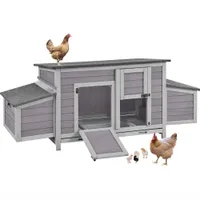How to keep chickens warm in winter – experts weigh in on the dos and don'ts for your backyard birds
Experts share their top tips for how they keep their beloved chickens warm during cold periods

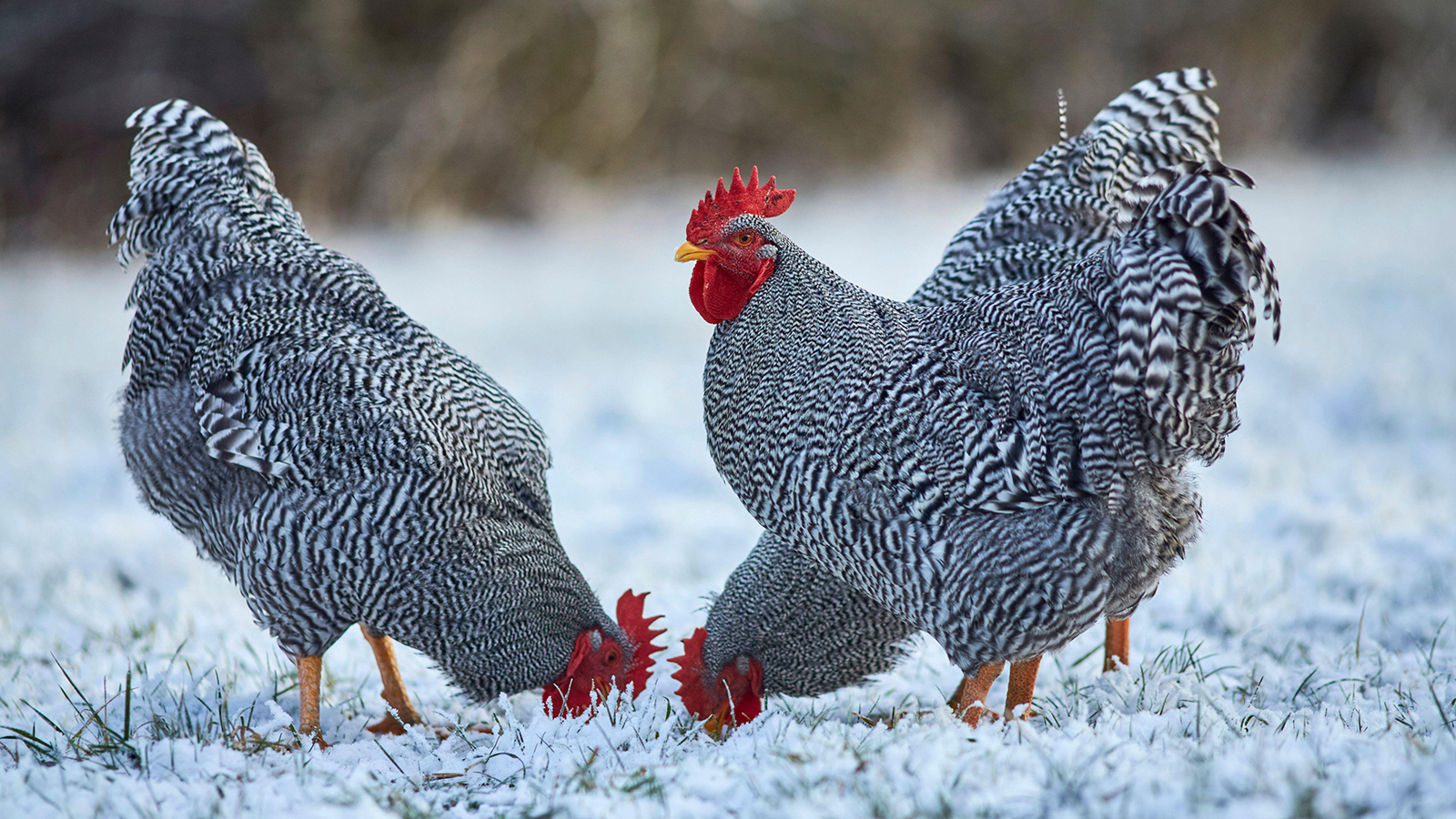
Design expertise in your inbox – from inspiring decorating ideas and beautiful celebrity homes to practical gardening advice and shopping round-ups.
You are now subscribed
Your newsletter sign-up was successful
Want to add more newsletters?

Twice a week
Homes&Gardens
The ultimate interior design resource from the world's leading experts - discover inspiring decorating ideas, color scheming know-how, garden inspiration and shopping expertise.

Once a week
In The Loop from Next In Design
Members of the Next in Design Circle will receive In the Loop, our weekly email filled with trade news, names to know and spotlight moments. Together we’re building a brighter design future.

Twice a week
Cucina
Whether you’re passionate about hosting exquisite dinners, experimenting with culinary trends, or perfecting your kitchen's design with timeless elegance and innovative functionality, this newsletter is here to inspire
If you keep chickens in your backyard there's a high chance you're extremely attached to them. Watching them peck around outdoors in bitterly cold weather, however, may mean you're anxious to learn how to keep chickens warm in winter.
If my mom is anything to go by, at the sign of the slightest wind and rain she will stare concernedly out of the window and say: 'I hope the chickens are alright in this weather.'
Of the experts I spoke to, one has been keeping chickens for more than 20 years and the other is a fifth generation chicken keeper. Unsurprisingly, they were both delighted to share their advice on keeping chickens warm during winter when temperatures drop. And just as importantly, what not to do.
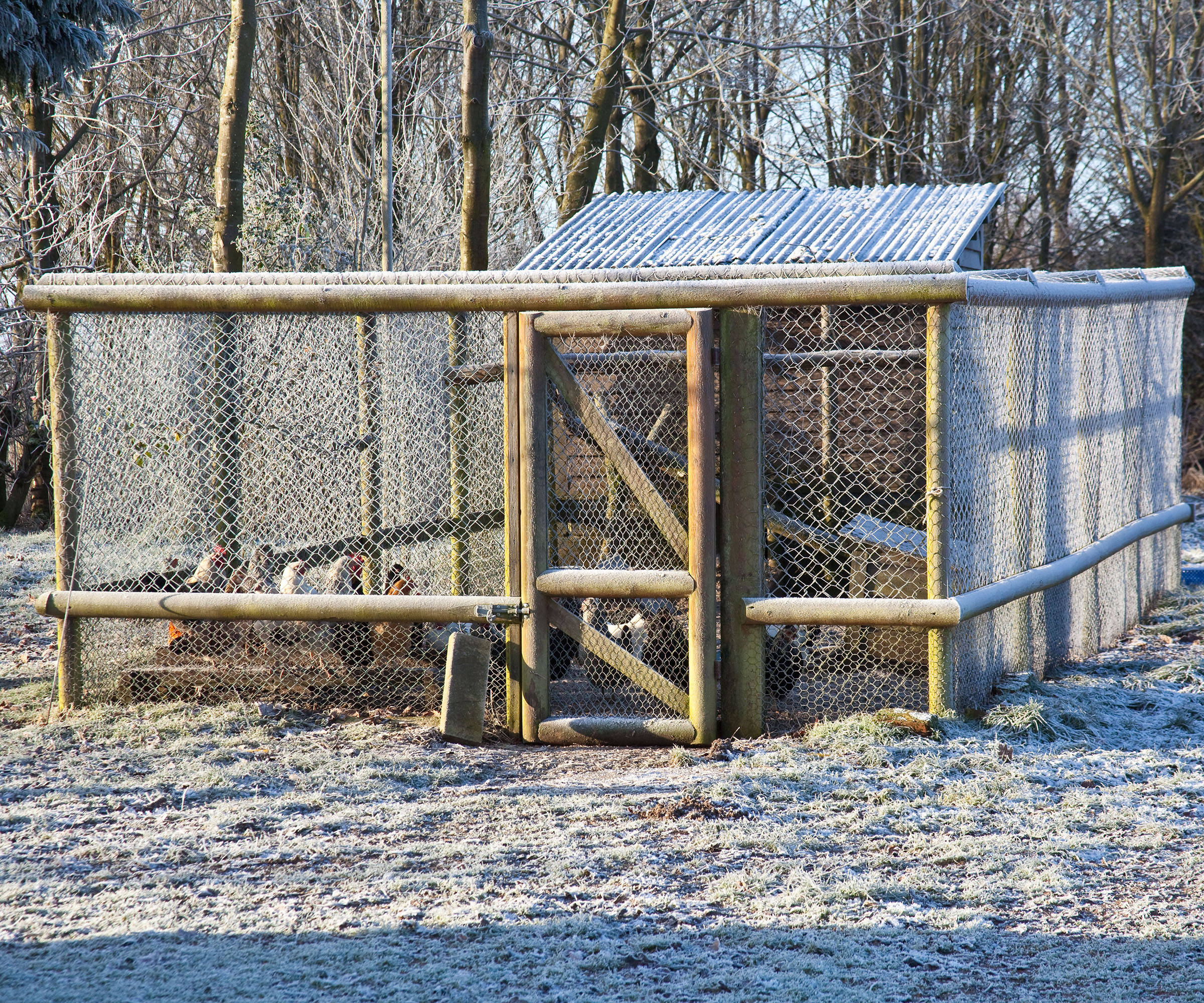
Make sure your structure protects your chickens from predators over winter
6 ways to keep chickens warm in winter
If you're wanting to follow in the footsteps of Carrie Underwood or Meghan and Harry and set up a chicken coop, it's handy to know that chickens are much better at keeping themselves warm than we are.
So even though you might be freezing cold when you're out in the backyard, it doesn't mean your chickens are feeling the same.
'Anyone who has a down comforter or coat knows how insulating and warm feathers are,' says Deborah Niemann of The Thrifty Homesteader.
But even hearing this, if you're a new chicken owner, you might still need some reassurance that they are not uncomfortable in icy weather, let alone unsafe.
Design expertise in your inbox – from inspiring decorating ideas and beautiful celebrity homes to practical gardening advice and shopping round-ups.
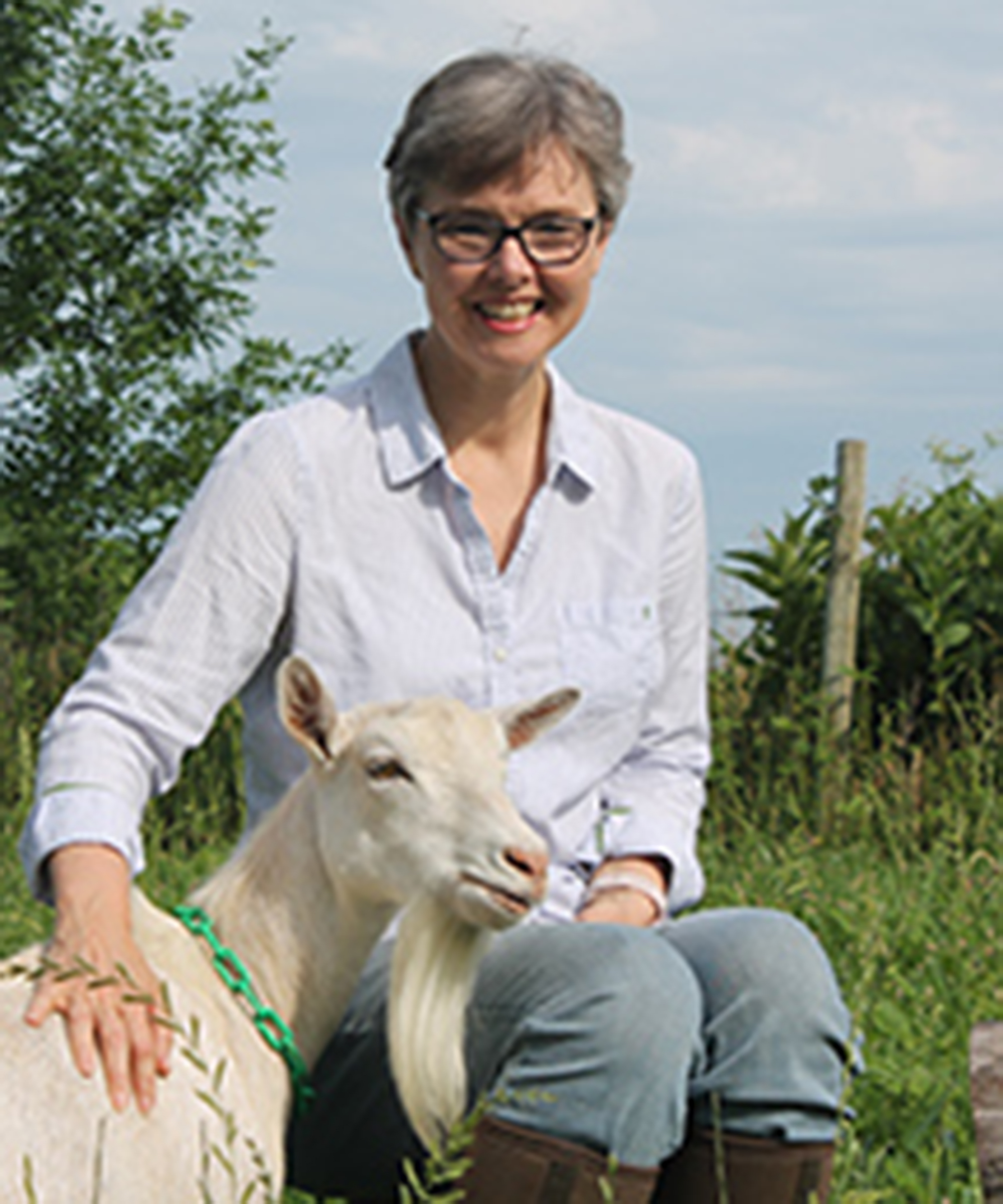
In 2002, Deborah relocated her family from the suburbs of Chicago to a 32-acre parcel on a creek in the middle of nowhere. Together, they built their own home and began growing most of their own food. Sheep, pigs, goats, chickens, ducks, and turkeys supply meat, eggs, and dairy products while an organic garden and orchard provide fruit and vegetables.
1. A secure structure is needed
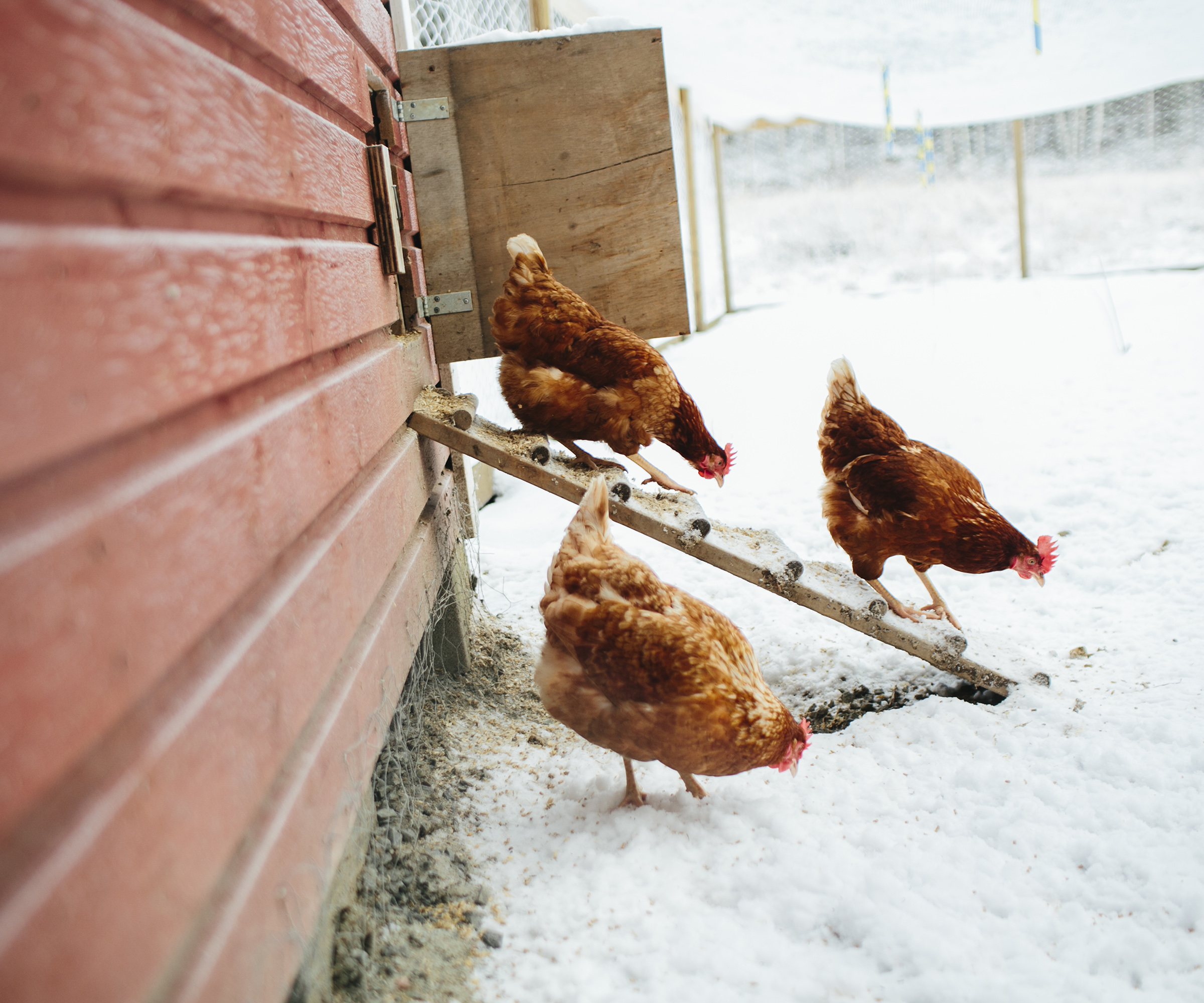
Chicken down is a fantastic insulator
'If you're backyard farming in all but the most brutal climates, chickens would probably survive outdoors, as long as they can get out of the wind and elements,' says founder of the Fresh Eggs Daily blog Lisa Steele.
'But a secure structure is best not only to keep them warmer using their body heat, but also safe from nocturnal predators,' she urges.
'Chickens do need shelter so that they can stay dry and out of the wind, but they don't need to be brought into your house,' says Deborah Niemann.
Morgete Wooden Chicken Coop Chicken House at Walmart
Currently available at a huge saving, this chicken house is also suitable for ducks. It has 2 nesting boxes and size-wize is suitable for about 3-4 chickens.
2. Insulate the coop
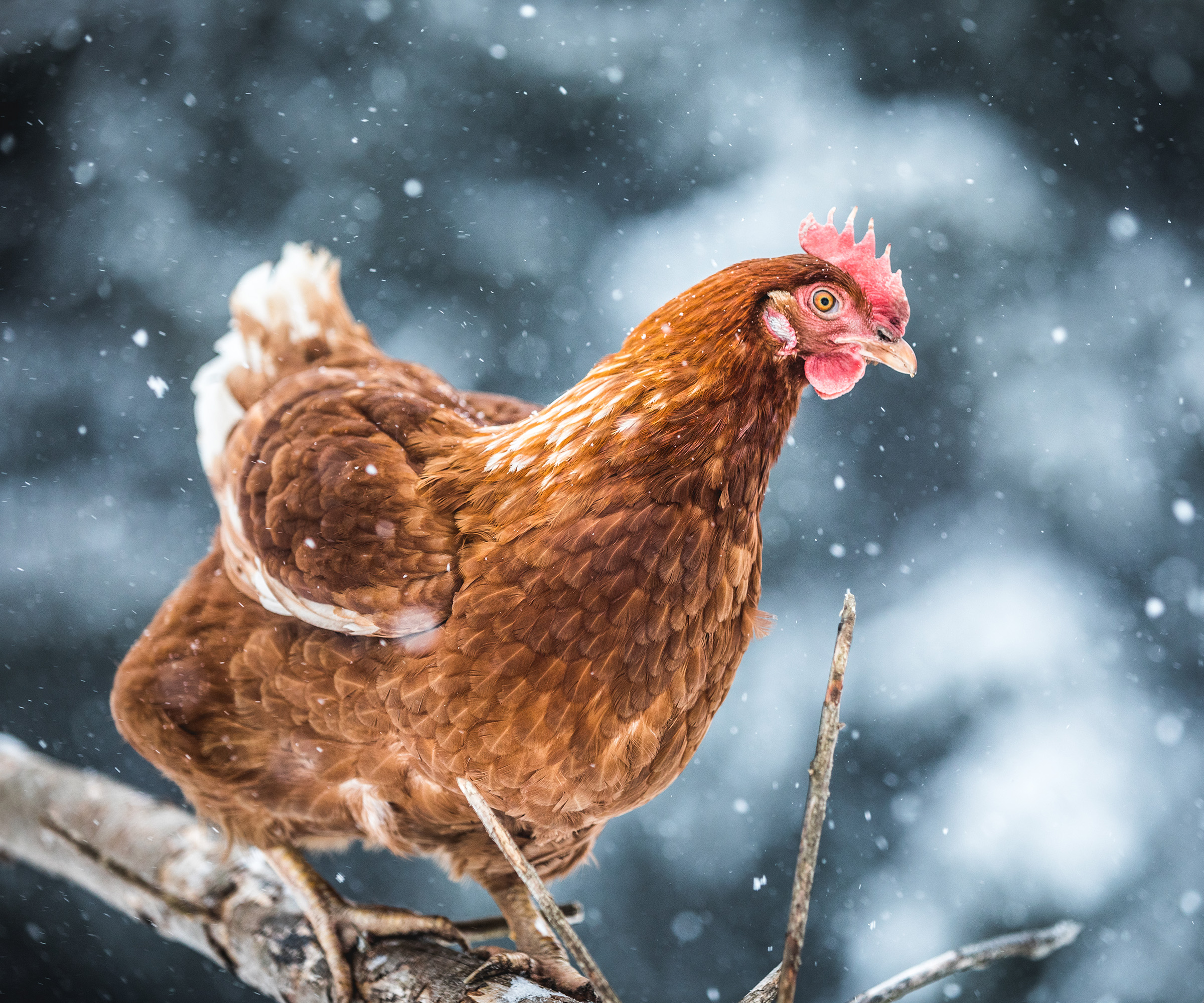
If you insulate your hen house be sure to leave some ventilation
'Insulating the walls and roof of a coop is a good idea,' explains Lisa Steele. 'Any type of insulation can be used as long as it is covered up with plywood or other building materials.'
'Chickens will eat almost anything, (which is why you should keep them well away from your vegetable garden) so it's imperative to make sure they can't get at any type of insulation you might use. Even just installing a wall of plywood sheets over the bare studs in the chicken coop, creating an air pocket in between the outer wall and inner wall can help to keep the coop warmer in the winter,' she says.
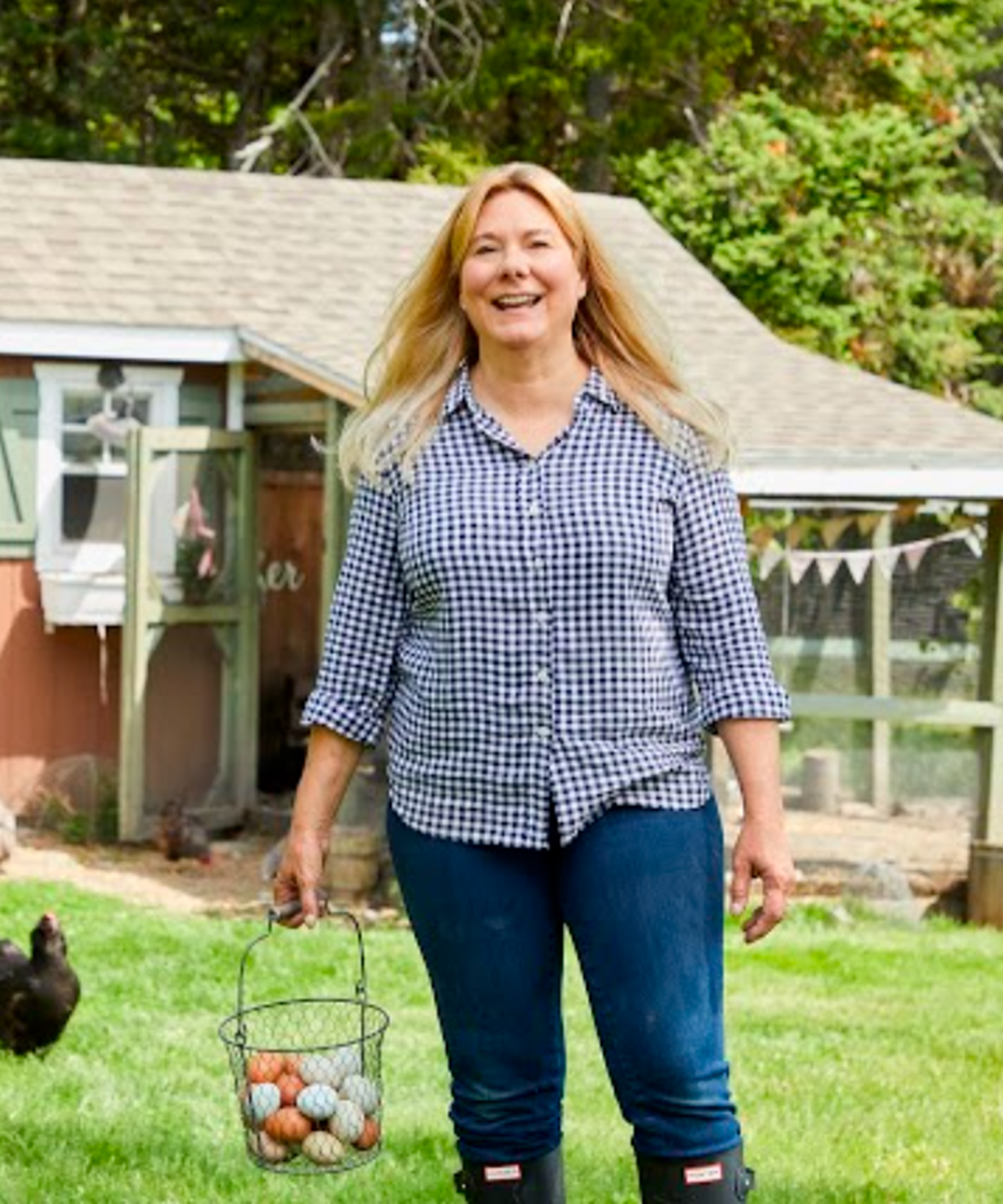
Dubbed 'Queen of the Coop', Lisa is a chicken lifestyle expert, a New Englander, born and bred, and a fifth-generation chicken keeper who grew up across the street from her grandparents' chicken farm. She spent her childhood raising chickens, rabbits, always an outdoor cat, and the occasional pet goat.
3. Add more bedding
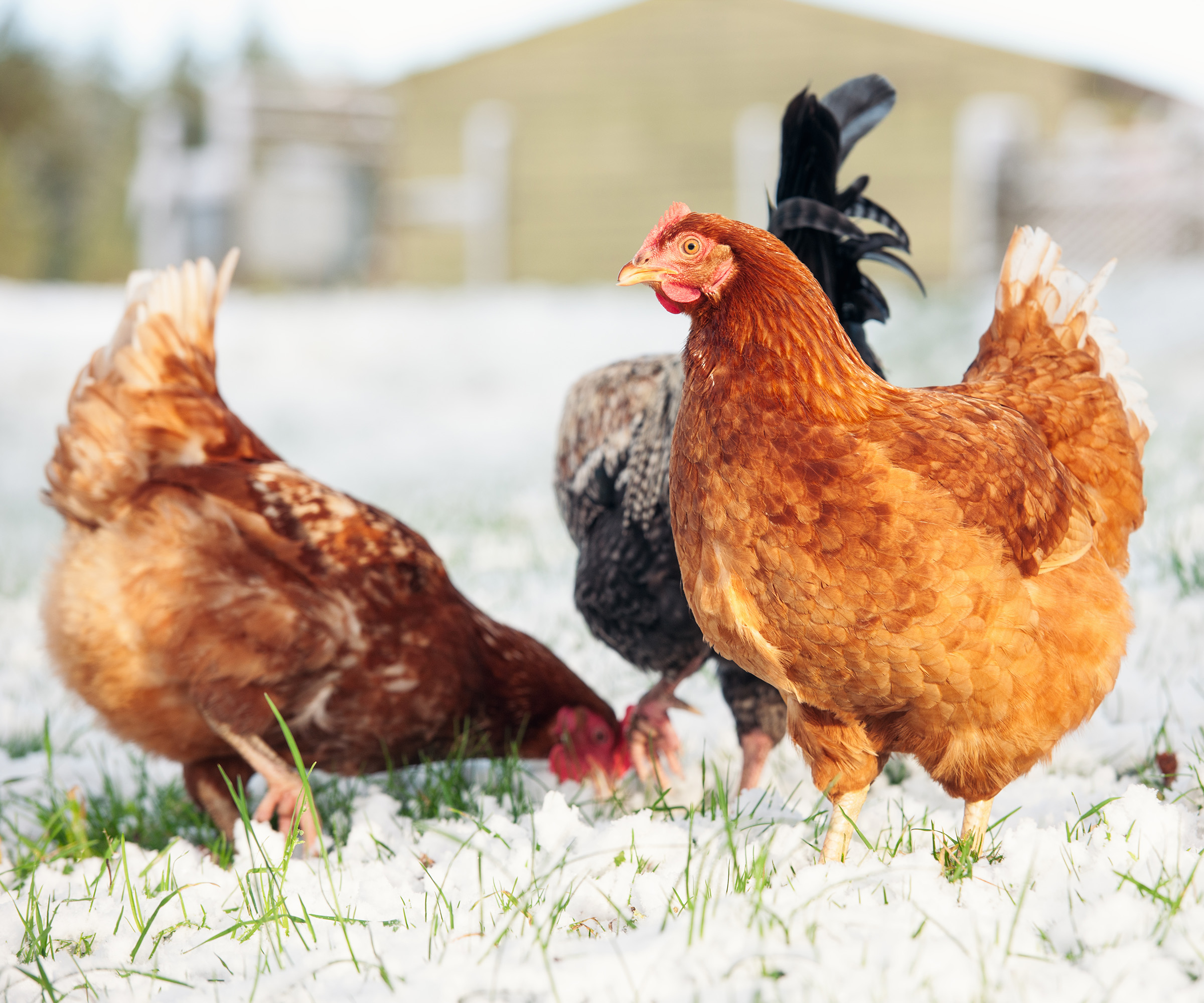
A thicker layer of straw in winter will create a cozy bed for chickens
Though they might sometimes peck at one another during the day, Chickens are great at keeping each other warm at night. But during cold weather try to ensure they have plenty of soft bedding to snuggle into and help them get a cozy night's sleep.
'Adding a nice thick layer of straw or other warm bedding on the floor to help insulate the coop, and offering whole grains and seeds to the flock before bedtime are all ways to keep chickens warm without heat,' advises Lisa Steele.
4. Keep it well ventilated
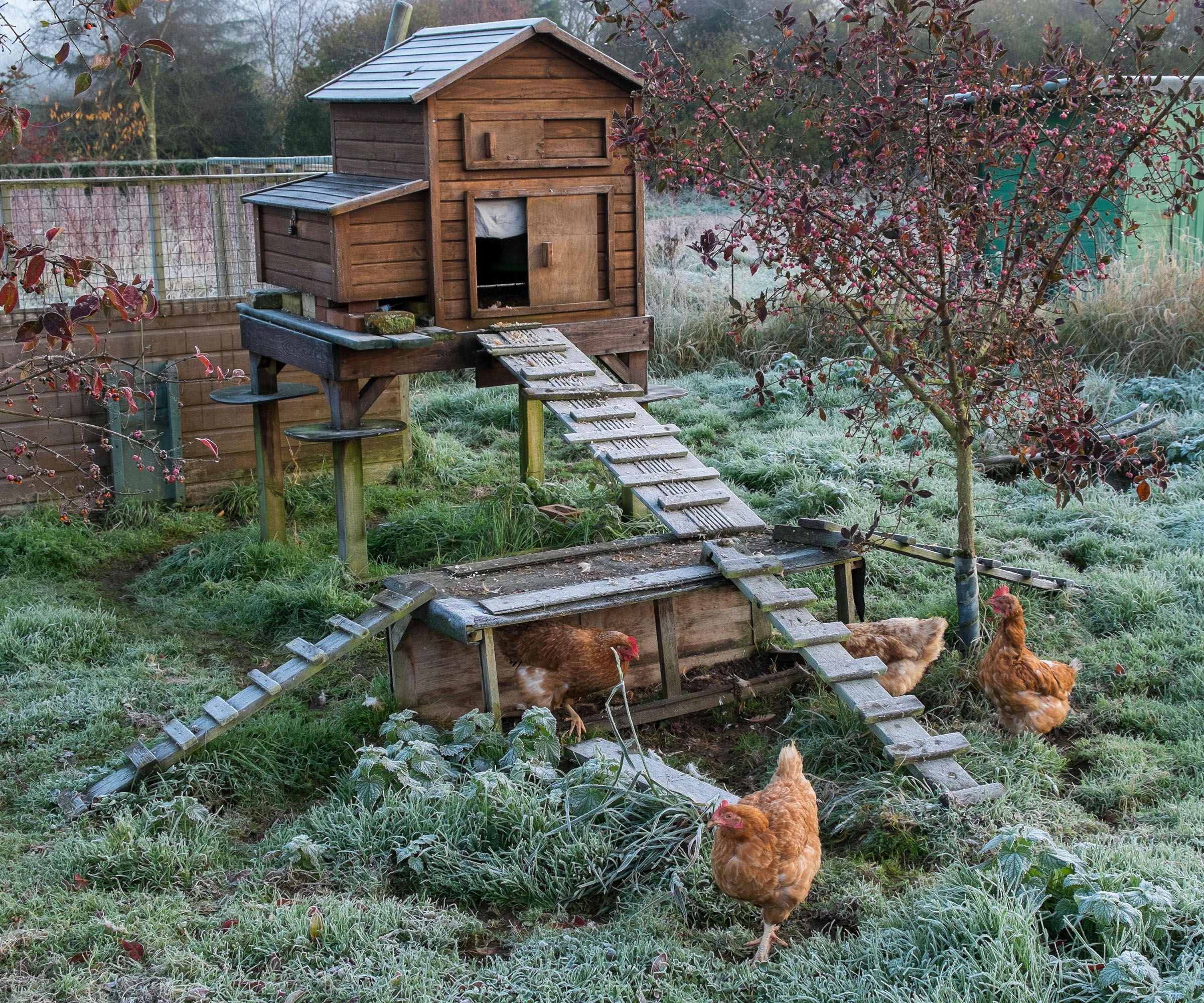
Too much humidity can cause more problems than cold
'Humidity build-up is a major cause of combs freezing, when combined with freezing temperatures,' explains Deborah. Who would even go as far to say that insulation around your coop isn't necessary.
'In my experience, insulation is a waste of money because the coop needs to be well-ventilated but not drafty,' she says.
'We keep our coop door open during the day, 12 months of the year, unless it's snowing because we don't want to have to shovel snow out of the coop,' says Deborah, who lives in Illinois where she's seen temperatures drop to 25 below freezing.
You may be wary of letting air in from the outside when temperatures are low but it is really important for the health of your chickens as you need ventilation to allow ammonia fumes and humidity to escape.
'I know of instances where people who insulated their coop and wound up with chickens that had respiratory problems due to the poor air quality. Then they realized they should open windows in winter, and this improved the situation,' Deborah says.
5. Don't use heat lamps
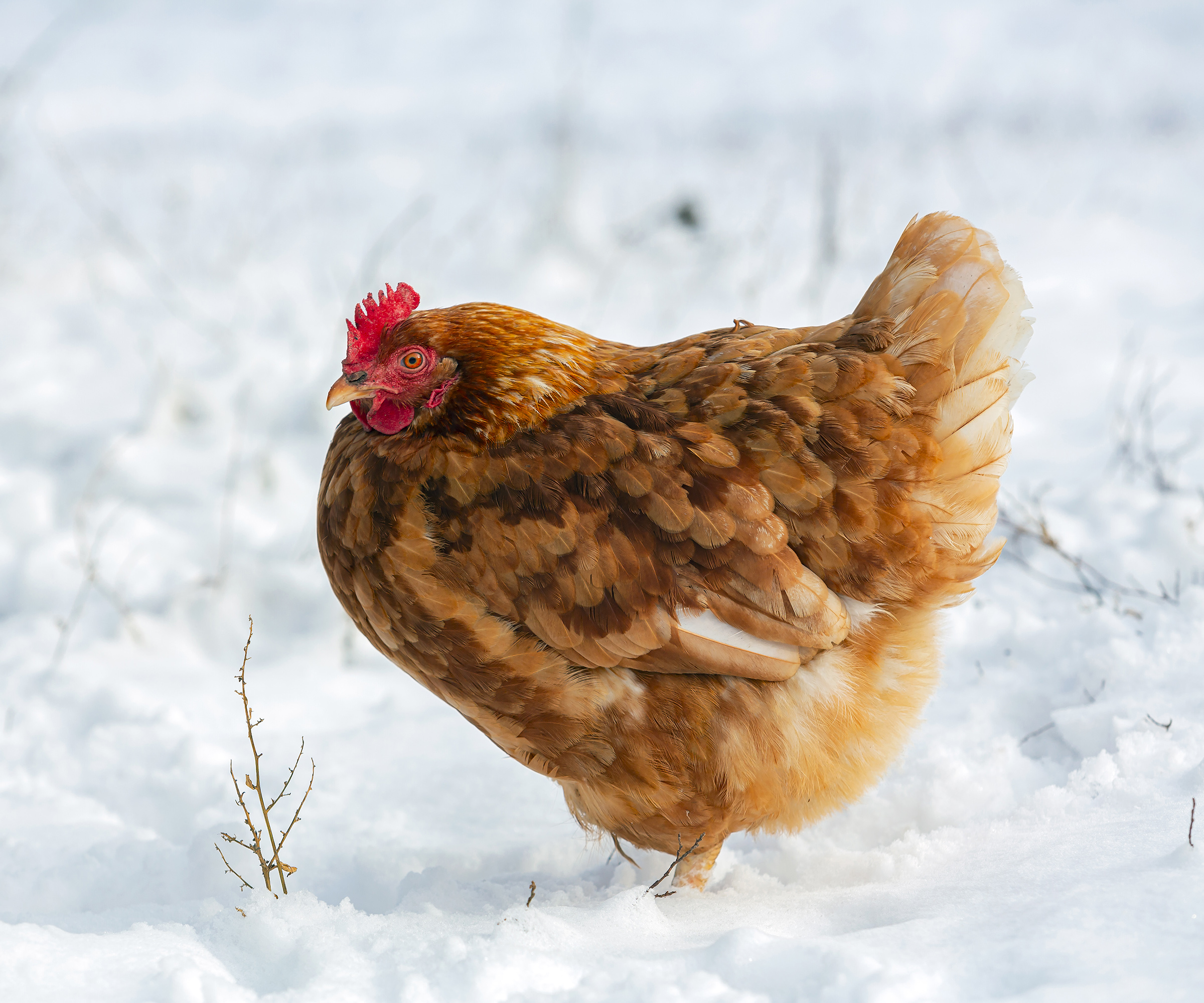
Heat lamps pose an unnecessary risk to your dear chickens
This is something that both these experts agree on categorically. 'I don't recommend heat lamps,' says Lisa Steele.
'Healthy, adult chickens in the right size coop for the flock size shouldn't need heat. Coop, barn and even house fires are started every year with heat lamps in chicken coops. Chickens can produce a fair amount of body heat (ten chickens produce as much heat as a regular light bulb),' she says.
'You do need a heat lamp for chicks, but once they are fully feathered out, which is around 4-6 weeks, assuming it's not the dead of winter, they should be fine without a heat lamp,' says Deborah Niemann.
'Adult chickens do not need a heat lamp or heater. As well as being counterintuitive for a fireproof backyard, a heater in a chicken coop is going to be covered in chicken poop very quickly,' says Deborah.
6. Don't knit them a sweater
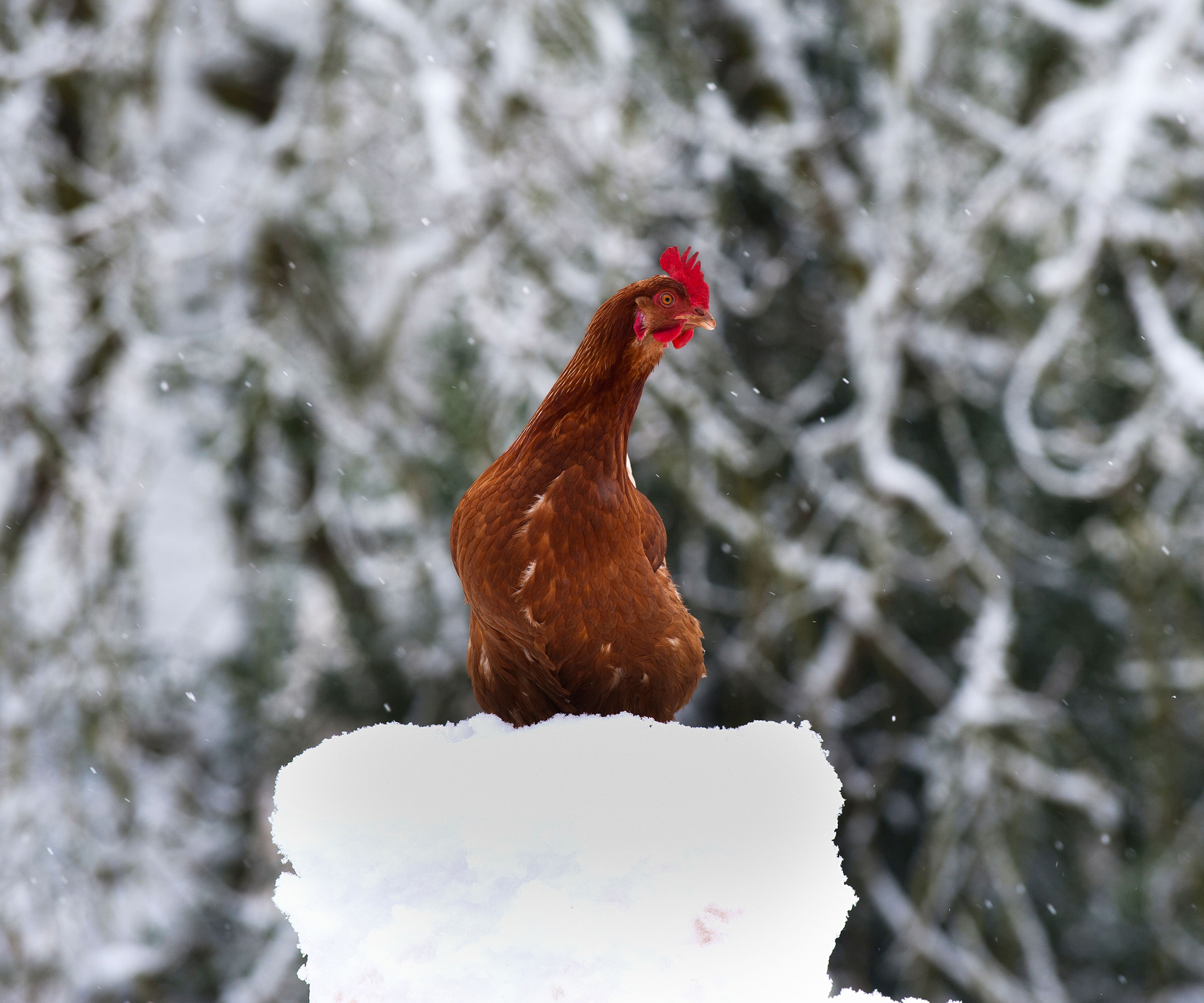
Chickens are hardier than they appear
As tempting as the image may be of a chicken wearing a knitted sweater, this is not something Deborah recommends when it comes to keeping your chicken safe and warm.
'Please don't fall for any silly online fads like chicken sweaters, which your chickens don't need and actually do a lot of harm. It stops their normal grooming behaviors, and the sweater could get caught on something causing the chicken to choke or get trapped away from the waterer and dehydrate,' she says.
FAQs
What temperature is too cold for chickens?
'Chickens are most comfortable in temperatures between 45-65 degrees Fahrenheit,' says chicken expert Lisa Steele. 'They are fine down to the single digits and even below freezing, as long as they are protected against cold.'
'Our chickens have been fine down to -25 F for a day. They survived a cold snap of -15 for 24 hours, and almost every winter they survive low temperatures below zero overnight,' says Deborah Niemann of The Thrifty Homesteader.
What breed of chickens do best in cold weather?
'Those breeds that are fuller bodied with small(ish) combs and wattles tend to do better in cold climates, as do those with feathered feet and those that originated in cooler climates, as opposed to the Mediterranean,' explains chicken expert Lisa Steele.
'Breeds such as the Rhode Island- or New Hampshire- Red, Buckeye, Jersey Giant, and Plymouth Rock are all good choices as are Ameraucanas, Australorps, Brahmas, Cochins, Delawares and Marans,' says Lisa.
'If you are in the coldest areas, such as Minnesota, North Dakota or central Canada, it's probably best to get some of the heavier breeds rather than the medium-framed Mediterranean breeds or Bantams,' agrees Deborah Niemann, of The Thrifty Homesteader.
If you keep chickens it may be because you are interested in sustainable living.
Permaculture gardening is a movement which has gained momentum recently and is all about organic gardening methods and allowing nature to dictate design.

Teresa was part of a team that launched Easy Gardens magazine two years ago and edited it for some time. Teresa has been a Gardens Editor at Homes & Gardens, Country Homes & Interiors and Living Etc magazine since 2020 and has developed close working relationships with top garden designers, and has been exposed to an array of rich garden content and expertise.
